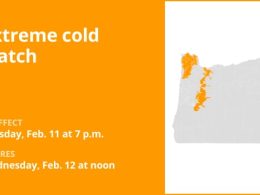Greetings, Dr. Roach I am a healthy male who is 71 years old. I recently read your column about proton-pump inhibitors (PPIs). I had a serious attack of pancreatitis about eight years ago, which sent me to the hospital for ten days. It hurt like hell. According to a scan, I had a serious infection. Finally, the culprit was identified as acid reflux.
I’ve struggled with acid reflux my entire life. Until my primary care physician ordered famotidine, I had to carry Rolaids in my pocket. Everything helped, but I had to take medication to control my reflux at least once a day. It was a huge triumph when the hospital’s doctors recommended pantoprazole. Now, I could eat anything at any time without experiencing any problems or negative effects. My primary care physician lowered it to 20 mg each day after roughly three months.
After all these years, I’m still taking medication, and my symptoms are still manageable. Every six months, I have blood tests done, and everything is good. All of my stats are excellent, and my kidneys are robust. My present doctor just recommended taking vitamin B12 every day.
Am I headed in the right direction here? Opinions vary somewhat, based on what I’ve read, however I did read that I should be alright with what I’m doing. — R.L.
ANSWER: PPIs are potent medications that stop your stomach’s acid-secreting cells from producing acid. There are less symptoms even if a person has reflux (a backlog of stomach contents in the esophagus) without acid since the esophagus isn’t nearly as damaged. The majority of GERD sufferers find that PPIs provide excellent relief.
I’ve never heard of pancreatitis brought on by acid reflux. I learned all the causes of pancreatitis by heart as a medical student, from the most well-known (alcohol and gallstones) to the least known (thiazide medications and scorpion venom), but I didn’t read anything about GERD. I’ve heard that taking antacids (like Rolaids) for an extended period of time might very rarely cause pancreatitis; maybe this happened to you.
I routinely see patients who have been taking PPIs for years, sometimes without even understanding why they are doing so. PPIs are occasionally prescribed by doctors without a strategy to quit them because reflux symptoms are widespread. Thus, they are frequently renewed annually.
Despite being quite safe medications, they are obviously linked to intestinal infections and can decrease the absorption of calcium and vitamin B12, which is why your doctor added vitamin B12. Acute interstitial nephritis is a kidney problem that some long-term PPI users have, and certain users may also have an elevated risk of developing chronic kidney disease. Some research has indicated a risk of dementia, but other research has not.
My standard practice is to taper off PPIs for patients who have been taking them without a good reason, using non-pharmacologic strategies instead (e.g., avoiding irritating foods, not eating immediately before bed, and raising the head of the bed). For GERD symptoms, prescribing medications like famotidine as needed also helps.
Most folks, in my experience, get by quite well without PPIs. Some patients, though, have symptoms that are unmanageable without medicine. Doctors and patients can jointly determine if the benefit of symptom control outweighs the slight risk of adverse effects.
More advice
-
Miss Manners: What can I say to fellow volunteer who takes free items meant for the homeless?
-
Asking Eric: I want my well-off friend to get off her soapbox and actually help the underserved
-
Dear Abby: Teen is wary of off the wall neighbor, whose odd habits are becoming odder
Although he regrets not being able to respond to each letter individually, Dr. Roach will try to include them in the column. Questions can be sent by mail to 628 Virginia Dr., Orlando, FL 32803 or by email to [email protected].
(c) Syndicate Inc., 2022 North America.
All rights reserved.










